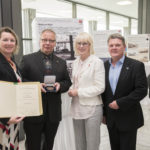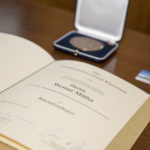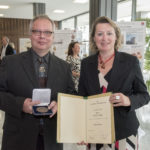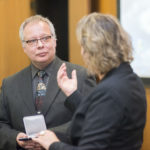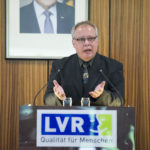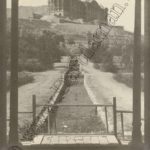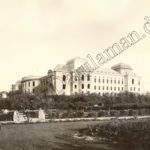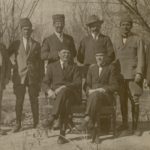Citizen Historian Werner Müller receives well-deserved award
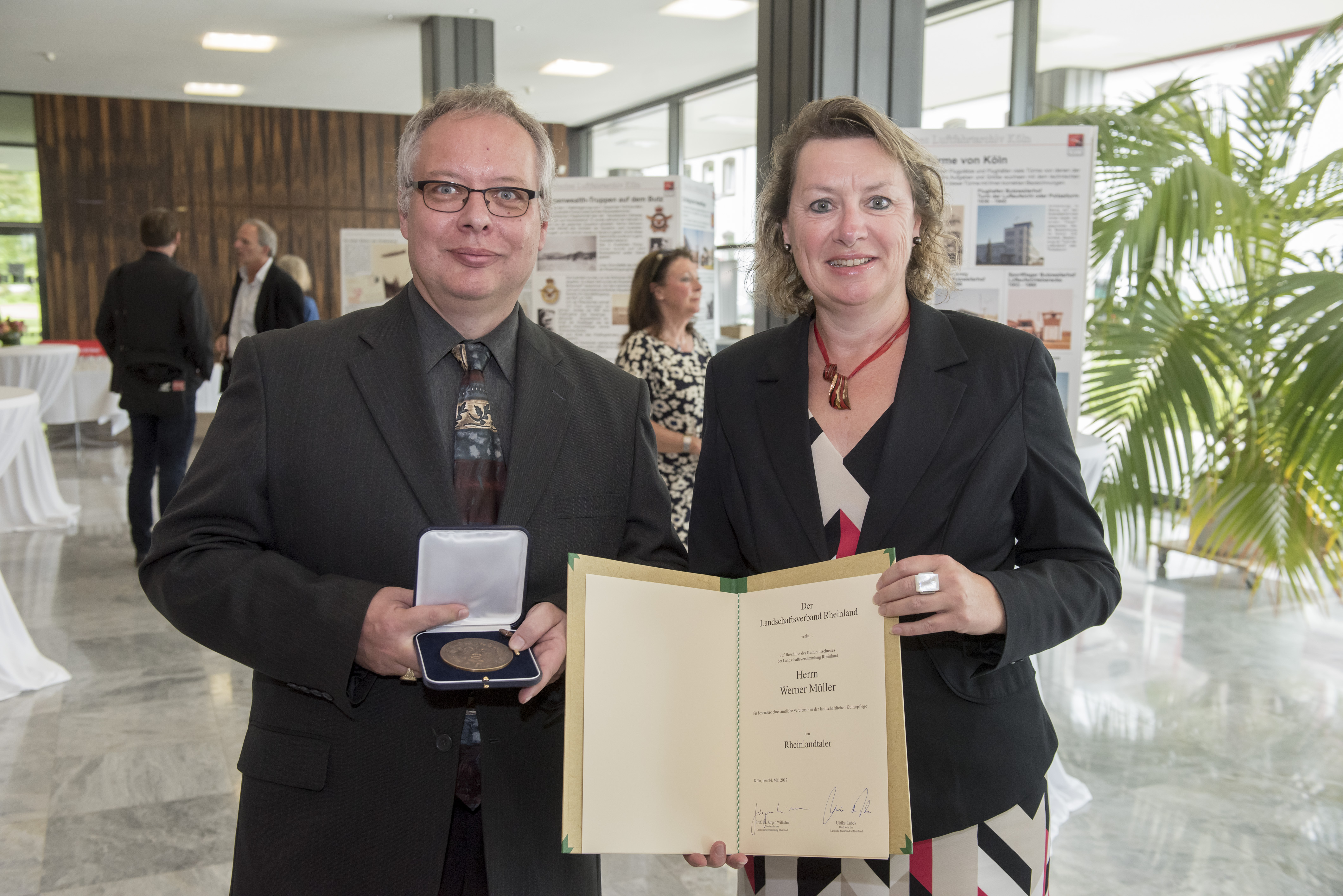
Written by Sophia Schultz, ARCH International
The “Rheinlandtaler” is an award given out by the “Landschaftsverband Rheinland”, a regional association in the German federal state North-Rhine-Westphalia. The association covers a population of approx. 9,4 million in the Rhineland. With a staff of 18,000 it is in charge of matters related to culture as well as providing services and counseling to the disabled and to young people.
Since 1976, they also annually award the “Rheinlandtaler” to those who have done exceptional work in advancing the culture of the Rhineland in regard to preserving and researching its regional history, folklore and language. The award comes in the form of a coin carrying the face of the Medusa and was designed by local artist Wolfgang Reuter.
On May 24, 2017, long term friend of ARCH and our first “Citizen Historian” received this great honor in an official ceremony in Cologne (see pictures below). Present among others were Anne Henk-Hollstein, the deputy chairwoman of the 14th Landschaftsversammlung, who presented Werner with the Rheinlandtaler, the mayor of Cologne, Elfi Scho-Antwerpes, and Stefan Klett, the president of the Aero-Club North-Rhine-Westphalia.
Werner has worked on matters of cultural heritage on a volunteer basis in many capacities and has for decades been committed to conveying his city’s history – with a focus on the history of Cologne’s aeronautics. For that cause he has, almost entirely on his own, built an archive that spans over 230 years of Cologne’s aviation history and is freely accessible to the public online. It consists of a collection of photographs, anecdotes, graphics, references to the work of other historians and also mentions the very early history of flying, starting with the first dreamers, and visionaries almost 2000 years ago.
On behalf of all of us at ARCH we congratulate Werner Müller for this great honor. We would have loved to be there to celebrate this special day with him, but Cologne is a bit far from Washington D.C.! After the ceremony, his mother invited a small circle of family and friends to a nearby Greek restaurant to continue the celebrations – darn, that would have been fun, too.
Werner is unstoppable and full of creative ideas and visions. He is very brave, too, and does not shy away from speaking up in public in defense of a historic place that is in danger of being torn down to make way for some parking lot. Nor does he give up and go home if he loses a battle – he just finds another way forward. For example, right now he is consulting with an author of crime novels, an endeavor which he hopes could lead to a new platform for preserving and conveying history.
The background: For years, Werner fought valiantly to preserve the historic Cologne Airport Butzweilerhof against the plans of developers. Sadly, in the end, the city approved a plan that will demolish most sections of the historic airport. Werner had pushed for an alternate plan that would have created a place for people to learn about the history of aviation and the special significance of this particular airport in Germany’s history. With the actual space now lost, Werner has shifted gears and intends to instead convey this bit of history (along with that of the airship station Cologne-Bickendorf and the Fort IV landmark) by embedding it in a detective novel.
Werner makes the argument that based on the historical events that happened at Butzweilerhof, this airport should be considered as the most important airport in Germany’s aviation history. For example, he discovered that the Butzweilerhof was the last stop of the Hindenburg in Europe, before it crashed in Lakehurst, New Jersey. Another noteworthy fact is that the Butzweilerhof makes an appearance in the memoirs of the “Red Baron”, aka Manfred von Richthofen, who had his first flight lessons there.
In addition, Werner also leads tours of Cologne’s medieval city wall and the Fort IV as a docent. He organizes exhibitions on his city’s history, and hold talks regularly. Moreover, Werner maintains an extensive archive of rare photos and journal reports about the work of German engineers who built some of the historic edifices in Afghanistan – he received these from his great-grandfather, who was part of an amazing historic mission of German engineers to Kabul in 1922 to build the iconic Darulaman Palace. And wherever a public hearing is held to debate the destruction of some historic site, and people oppose it but are afraid to speak up, Werner is at the meeting and unafraid, and equipped with facts and documents.
As you will have noticed by now, we love Werner – and all the more so because he himself always downplays his achievements, brushing off any praise for his vey creative, time-consuming efforts and civic engagement by remarking that it is “just a hobby”.
Well, that is exactly what is so impressive and why it feels so right that Werner was the recipient of the Rheinlandtaler award. His work to preserve, protect and promote his home’s heritage is personal, it is a matter that could not be closer to his heart. And he has so much fun fighting for what he so strongly believes in. Kudos! Herzlichen Glückwunsch, lieber Werner.
- (From left to right): Anne Henk-Hollstein (Deputy chairwoman of the 14th Landschaftsversammlung-Rhineland, Werner Müller, Elfi Scho-Antwerpes (Mayor of Cologne), Stefan Klett (President of the Aero-Club North-Rhine-Westphalia).
- Werner Müller’s Rheinlandtaler award.
- Werner Müller and Anne Henk-Hollstein (Deputy chairwoman of the 14th Landschaftsversammlung-Rhineland).
- Werner Müller and Anne Henk-Hollstein (Deputy chairwoman of the 14th Landschaftsversammlung-Rhineland).
- Werner Müller speaking at the Rheinlandtaler award event.
- Logo for Werner Müller’s website, detailing Wilhelm Rieck’s journey to Afghanistan to build the Darul Aman Palace.
- Logo for Cologne Aviation Archives project, created by Werner Müller.
- View from Wilhelm Rieck’s booth on the private palace Thaj Beg of Amanullah Khan.
- The Darulaman-Palace in construction.
- The German architects of the Darulaman-Palace. Wilhelm Rieck all the way on the right.

